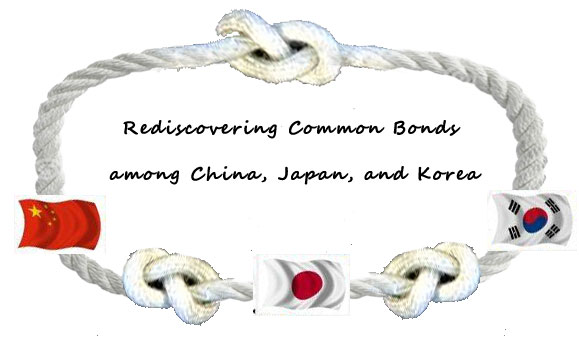Korea-Japan Joint Committee for Promoting History Studies

JCIE served as the Japanese secretariat for the Korea-Japan Joint Committee for Promoting History Studies, an initiative agreed upon at a 1997 summit between Japanese Prime Minister Ryutaro Hashimoto and Korean President Kim Young-Sam. The Committee was launched in July 1997 with the goal of finding effective ways to enhance studies of history in the two countries.
Keio University Shibusawa Ei’ichi Memorial Lectureship

The Shibusawa Ei’ichi Memorial Lectureship was established at Keio University in 2004 with the sponsorship of the Shibusawa Ei’ichi Memorial Foundation, to be held each year for five years. This for-credit course organized by JCIE consisted of a series of lectures that dealt with the redefinition of the public good and the role of civil society.
Managing China-Japan-US Relations and Strengthening Trilateral Cooperation

In 2007, JCIE launched a study and dialogue project aimed at developing a deeper understanding of the complex dynamics of the China-Japan-US trilateral relationship, identifying the issues central to managing stable and cooperative relations, and examining ways of promoting more meaningful cooperation on key challenges.
Multicultural Power Project

In 2012, JCIE conducted the “Multicultural Power Project,” which entailed a survey on the topic of “foreign residents and local communities” in Japan. In this study, foreign residents active within their local community were interviewed, their societal roles analyzed, and the way in which Japanese society should treat foreign residents was examined.
New Perspectives on US-Japan Relations

In 1998, JCIE launched a research project, led by Professor Gerald Curtis of Columbia University, that attempted to address how US and Japanese national interests intersect in terms of the economic, political, and security issues facing post–cold war East Asia, as well as in the context of globalization.
Northeast Asia Cooperation Dialogue

The Northeast Asia Cooperation Dialogue (NEACD) was launched in 1993 and JCIE served as Japan secretariat in 2005 and 2006. The 17th meeting drew intense media attention and examined national perspectives on regional security, issues related to nuclear verification, and prospects for Track 1 and Track 2 diplomacy.
Rediscovering Common Bonds among Japan, China, and Korea Program

By working together with the young generation that will serve as tomorrow’s leaders, this project seeks to rediscover the bonds between Japan, China, and Korea and to explore their potential role in the 21st century.
Reinvigorating US-Japan Policy Dialogue and Discussion in a Time of Political Change

During the last decade there has been increasing concern about the state of US-Japan policy dialogue and exchange. To address these concerns, JCIE launched this study in January 2009 to examine the state of policy dialogue between both countries and assess the nongovernmental linkages that have facilitated contact between political leaders and policy experts in each country.
Research Project on Global Policy for Joetsu City

In February 2000, a research team produced an interim report focusing on the current status of Joetsu City’s international activities, and from September 24 to October 1, the research team visited Joetsu’s sister cities in China and Korea to study ways of promoting substantive exchanges in the areas of administration, education, and the economy in the years to come.
Russia-Japan Policy Dialogue

Starting in 1997, JCIE organized the Russia-Japan Policy Dialogue, a seminar bringing together opinion leaders and nongovernmental leaders from both countries to discuss possible areas of cooperation. The meeting discussions focused on economic and political issues facing the two countries, as well as global issues of shared concern.
